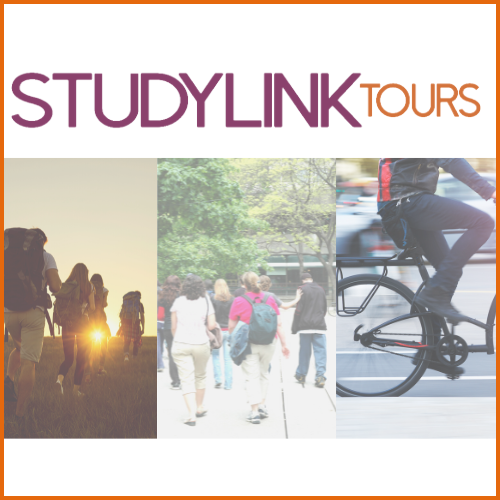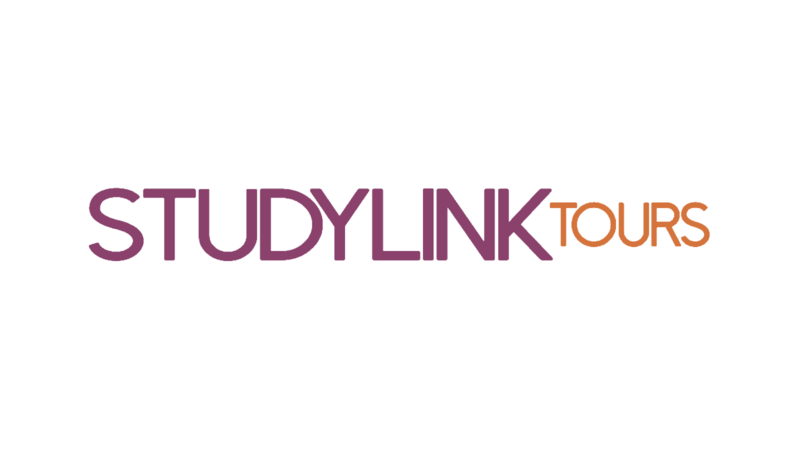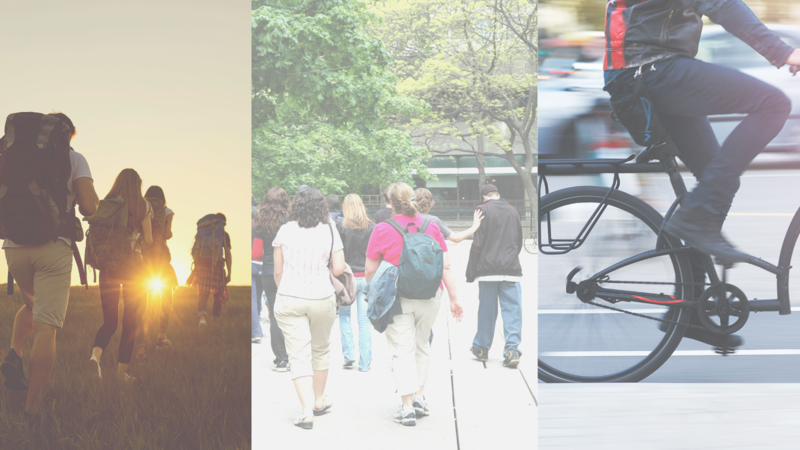Embedding Sustainability Education into Student Field Trips
16th December 2022
Gemma Hall, Brand Manager at StudyLink Tours UK.
Outward student mobility opportunities, for many universities and colleges, may have been limited over the past few years but with international experiences an important component of students’ education, it’s increasingly important to consider how these experiences can play a part in sustainability education for both staff and students.
Whilst travel is a contributing factor in a university’s overall carbon footprint, it can also play a key role in educating students about the world around them, connecting them to the environment and communities most affected by climate change, along with wide-ranging sustainability topics.
As an example of this, in the summer of 2022, StudyLink Tours helped the University of Hertfordshire to arrange student field trip to the High Arctic. During their 11-day study tour to Svalbard, they used a variety of techniques to study glaciers and their melt water production, in response to global warming. To find out more about their bespoke itinerary, visit the StudyLink website here.
If planning a student trip, how can you ensure carbon reductions across your institution’s outward student mobility programmes?
As an EAUC company member, StudyLink advocates taking a whole-institution approach to embedding sustainable student group travel. By working with one dedicated supplier, this means you gain a better view of your institution’s carbon emissions, therefore working towards achieving carbon reduction before any carbon offsetting or sequestration projects takes place.
StudyLink’s Account Management team works with universities and colleges to demonstrate the greenhouse gas emissions made by tours and faculties, highlighting ways in which you can adopt best practice for minimising the environmental impact of your student travel. Furthermore, on working with contracted accounts, StudyLink can develop a bespoke sustainability and carbon reduction/offsetting strategy that is tailored to your university’s key priorities.
StudyLink are currently partnered with Carbon Footprint to offset one tonne of CO2 emissions and have committed to planting one Maya Nut tree in Peru for every student group tour booked with them – read more about this work here. We have specifically chosen projects that support the UN’s Sustainable Development Goals, including SDGs 4, 8, 11, 13 and 15, which meets the recent recommendations from the EAUC Carbon Coalition Offsetting Briefing. Furthermore, we provide a unique opportunity for each travel booker to offset the remaining tour emissions through their chosen Carbon Footprint project, in the UK or globally.
Aside from geography fieldwork, how easy is it to embed sustainability education within all student field trips?
With each university and college being at various stages of embedding sustainable development into their teaching, StudyLink are working towards providing services that cater to a range of destinations and visits, thus helping academics to incorporate best practice into student field work. The range of countries and destinations offered, that have strong sustainability initiatives in place, such as Costa Rica, Helsinki and Copenhagen, can educate students on how leading countries are tackling the climate crisis in different settings.
In addition, StudyLink offer a wide range of visits, workshops and tours, that are curated specifically thanks to their alignment with the key topics of sustainable development. So, if you are planning a faculty-led trip but seek to incorporate sustainability into its itinerary, this will provide a practical way embed just that within your trip’s existing requirements.
StudyLink are also big fans of the ongoing trend of ‘slow travel’, an approach that is sure to have cross-over appeal into student group travel. ‘Slow travel’ not only covers the mode of transport - getting from A to B over more time, often resulting in lower greenhouse gas emissions – it also embraces the concept of travelling to less populated tourism destinations, spending more time at said destinations to allow the educational and cultural benefits to fully resonate with students. This also provides them the opportunity to be better immerse in these local communities.
StudyLink Tours is a Company Member of the EAUC.
If you would like any further information on how StudyLink can help you with your student group travel requirements, please contact [email protected].
If you found this was an insightful read and wish to directly engage with our growing network, learn about joining as a Company here.
Gemma Hall, Brand Manager at StudyLink Tours UK.
Outward student mobility opportunities, for many universities and colleges, may have been limited over the past few years but with international experiences an important component of students’ education, it’s increasingly important to consider how these experiences can play a part in sustainability education for both staff and students.
Whilst travel is a contributing factor in a university’s overall carbon footprint, it can also play a key role in educating students about the world around them, connecting them to the environment and communities most affected by climate change, along with wide-ranging sustainability topics.
As an example of this, in the summer of 2022, StudyLink Tours helped the University of Hertfordshire to arrange student field trip to the High Arctic. During their 11-day study tour to Svalbard, they used a variety of techniques to study glaciers and their melt water production, in response to global warming. To find out more about their bespoke itinerary, visit the StudyLink website here.
If planning a student trip, how can you ensure carbon reductions across your institution’s outward student mobility programmes?
As an EAUC company member, StudyLink advocates taking a whole-institution approach to embedding sustainable student group travel. By working with one dedicated supplier, this means you gain a better view of your institution’s carbon emissions, therefore working towards achieving carbon reduction before any carbon offsetting or sequestration projects takes place.
StudyLink’s Account Management team works with universities and colleges to demonstrate the greenhouse gas emissions made by tours and faculties, highlighting ways in which you can adopt best practice for minimising the environmental impact of your student travel. Furthermore, on working with contracted accounts, StudyLink can develop a bespoke sustainability and carbon reduction/offsetting strategy that is tailored to your university’s key priorities.
StudyLink are currently partnered with Carbon Footprint to offset one tonne of CO2 emissions and have committed to planting one Maya Nut tree in Peru for every student group tour booked with them – read more about this work here. We have specifically chosen projects that support the UN’s Sustainable Development Goals, including SDGs 4, 8, 11, 13 and 15, which meets the recent recommendations from the EAUC Carbon Coalition Offsetting Briefing. Furthermore, we provide a unique opportunity for each travel booker to offset the remaining tour emissions through their chosen Carbon Footprint project, in the UK or globally.
Aside from geography fieldwork, how easy is it to embed sustainability education within all student field trips?
With each university and college being at various stages of embedding sustainable development into their teaching, StudyLink are working towards providing services that cater to a range of destinations and visits, thus helping academics to incorporate best practice into student field work. The range of countries and destinations offered, that have strong sustainability initiatives in place, such as Costa Rica, Helsinki and Copenhagen, can educate students on how leading countries are tackling the climate crisis in different settings.
In addition, StudyLink offer a wide range of visits, workshops and tours, that are curated specifically thanks to their alignment with the key topics of sustainable development. So, if you are planning a faculty-led trip but seek to incorporate sustainability into its itinerary, this will provide a practical way embed just that within your trip’s existing requirements.
StudyLink are also big fans of the ongoing trend of ‘slow travel’, an approach that is sure to have cross-over appeal into student group travel. ‘Slow travel’ not only covers the mode of transport - getting from A to B over more time, often resulting in lower greenhouse gas emissions – it also embraces the concept of travelling to less populated tourism destinations, spending more time at said destinations to allow the educational and cultural benefits to fully resonate with students. This also provides them the opportunity to be better immerse in these local communities.
StudyLink Tours is a Company Member of the EAUC.
If you would like any further information on how StudyLink can help you with your student group travel requirements, please contact [email protected].
If you found this was an insightful read and wish to directly engage with our growing network, learn about joining as a Company here.














